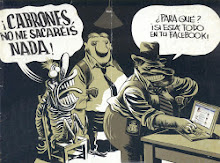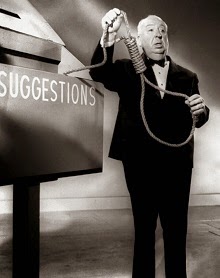Adam Woog
Adam Woog’s list of his 10 favorite mysteries of 2016 constitutes a ripping good reading list for now and well into 2017.
In these uncertain
times, escaping into novels — crime fiction included — can be a great comfort.
These 10 are among my favorites from 2016:
“The Wrong Side of Goodbye” by Michael
Connelly (Little,
Brown). Harry Bosch,
the soul of Connelly’s intense novels, copes with retirement from the LAPD by working
two gigs: private eye and
volunteer investigator for a small town. He doggedly tracks a serial rapist
while helping a dying billionaire discover what became of a long-lost love and,
possibly, the billionaire’s only heir.
“The
Trespasser” by Tana French (Viking). Fierce interrogations, led by
blunt-talking Antoinette Conway of the Dublin Murder Squad, form the backbone
of her investigation into the death of a woman in her strangely immaculate
apartment. Some of Conway’s senior colleagues — normally antagonistic toward
the young, female, biracial detective — are strangely eager to help.
“King Maybe” by Timothy
Hallinan(Soho). Hallinan
proudly carries the torch once borne by Donald E. Westlake, king of the comic
caper. Ace burglar and world-class wiseass Junior Bender tries to steal a rare
stamp from a creepy debt collector. When things go south, our man escapes — but
the creep is eager to find Junior and reason with him. Meanwhile, Junior is
blackmailed into robbing the home of a Hollywood bigwig, who promptly hires him
to rob that same house. It’s complicated.
“First Fix
Your Alibi” by Bill James(Severn
House).Welsh writer James’ obscurity in America borders on the
criminal. His police detectives Harpur and Iles have perhaps the most eccentric
relationship in crime fiction, and James’ writing is fresh, vibrant and darkly
funny. Here the cops must prevent a war between drug lords from erupting into
widespread slaughter.
“The Murder of Mary Russell” by Laurie
R. King(Bantam). In King’s sharp,
inventive books, Russell
— Sherlock Holmes’ wife — is as resourceful as the retired Great Detective
himself. A man appears on their doorstep, claiming to be the son of their
trusted housekeeper, Mrs. Hudson. Mrs. Hudson comes home one day to find signs
of a struggle — and a missing Russell.
“Precious and Grace” by Alexander
McCall Smith(Pantheon). Deeply satisfying and joyful,
McCall Smith’s series about Precious Ramotswe, proprietor of Botswana’s No. 1
Ladies’ Detective Agency, can be read as delicious entertainment. Or as wise
lessons in humility, tolerance and forgiveness. Or — and this is the course I
recommend — as both. Here, a Canadian woman who grew up in Botswana hires
Ramotswe to find her old nanny.
“The Last Days of Night” by Graham
Moore (Random
House). Moore
knows something about historical fiction — take his Oscar-winning screenplay
for “The Imitation Game.” This ripping tale of industrial
espionage, legal maneuvering and brilliant science considers another epic moment: the battle in the late
1880s over the future of electricity, pitting Edison’s direct current against a
superior technology, alternating current, devised by Nikola Tesla and George
Westinghouse.
“City of
Secrets” by Stewart O’Nan(Viking). A volatile setting — Palestine just
after World War II — anchors this vivid and melancholy novel by a gifted
writer. A Latvian refugee, Brand, drives a taxi by day, and by night does the
same for rebels bent on ending the British occupation through assassinations,
bombings and guerrilla raids on weapons caches.
“A Great Reckoning” by Louise Penny (Minotaur). Penny’s work combines luminous prose,
complex but uncluttered plots and profound compassion. Homicide detective
Armand Gamache, coming out of retirement to head Quebec’s police academy,
encounters corrupt faculty, the murder of a vile administrator and a race to
discover the secrets of a puzzling map.
“The Trap” by Melanie
Raabe (Grand
Central). In a
crisp translation from the German by Imogen Taylor, Raabe delivers on a sly
premise. Linda Conrads, a famous author, has isolated herself, refusing all
interviews after witnessing her sister’s murder — until she becomes convinced
that a TV reporter was responsible. After writing a book with echoes of the
real crime, she sends the reporter a copy and offers an interview; he takes the
bait and an intricate, two-person game of discovery ensues.
A final
note: I am heartbroken at the death, apparently
from an overdose, of Roger
Hobbs, a Portland native who lived for some time in Seattle. Hobbs was a gifted
writer whose books (“Ghostman,” “Vanishing Games”) belied his youth and showed
brilliant promise.


































0 comentaris:
Publica un comentari a l'entrada